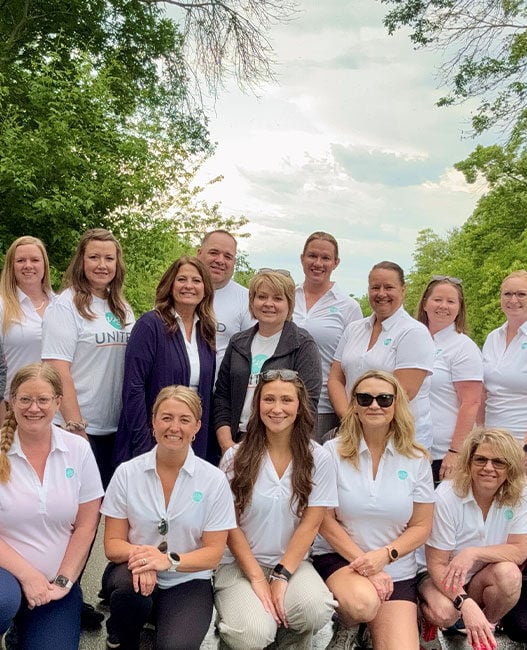Parisa Akaber, working as an operational technology specialist in the Siemens Cyber Practice team is passionate about encouraging greater diversity into engineering. Her role means she is responsible for performing cyber threat and risk assessments for external customers and internally within Siemens.
Describing the highlight of her career so far, Akaber refers to being presented the opportunity to work in academia and industry. Specifically, working on the Knowledge Transfer Partnership project where she performed ground-breaking research to address real-world industry challenges.
“In this project with Newcastle University and Siemens, I developed a mathematical model-based platform for optimising the charging of electric fleet vehicles. The algorithms are now part of the Siemens e-depot smart charging SaaS solution, and they help reduce charging costs and manage power peaks.
“I believe that the skills I gained during this project – modelling complex, real-world problems by using advanced mathematical equations – will be an asset for me in any future role,” Akaber said.
Akaber grew up and completed her undergraduate degree in Iran, where young men and women were encouraged to study engineering, medicine, or law to build a successful career. this means there wasn’t a preconception that tech is for a specific gender, instead, it is for anyone who wants to do well. Half of Akaber’s cohort studying Computer Engineering were female students, meaning it came as a shock when she moved to Canada to complete her postgraduate degree that the number of women on the course was much lower.
“The idea that technology is a boy’s domain seems to start from a young age. Boys and girls tend to be treated differently by parents, teachers, and carers,” Akaber said.
Fortunately, Akaber explained how she has never experienced prejudice in the workplace due to her gender. However, Akaber recalled moments from university where she was led to believe that because she was a woman, her skills were somehow less inferior to the boys’, believing she had to work extra hard to prove herself. As well as this, Akaber said she was often more quiet in meetings due to being the only woman, surrounded by much louder men.
“No one treated me differently, but I behaved differently because of some unconscious deep-rooted belief that women are different, probably rooted in societal preconceptions, which are ingrained in us from a young age,” said Akaber.
How can we solve the problem?
Akaber firmly believes that encouraging greater diversity in the industry begins with and should be led by upper management: “We need more women in executive roles, more inspiring role models and more female mentors.
“To achieve that, we must invest in women, offering development opportunities for female leaders that are focused on building the leadership competencies they need,” she said.
Research from London Tech Week uncovered that 57% of respondent’s see a lack of role models as a barrier to women entering the industry.
Education systems are an ideal starting point, explained Akaber. “We must learn to treat boys and girls the same from an early age, give them the same opportunities and make an effort to eliminate unconscious stereotypical thinking, right from nursery through to university.
“We should tell girls they are strong, empower them to believe in themselves,” she continued.
Sophie Lazenby, third year Industrial Design and Technology student at Brunel University said: “More could be done to encourage young girls into STEM, especially in schools. The subject is getting cut from the curriculum in schools due to funding cuts so its becoming more and more difficult to get into the industry.”
Sophie also explained how her passion for STEM was sparked at a young age as she used to watch her grandad in his woodwork shop: “My dad also has a hobby that involves making and building things with electronic components, which I grew up around.
“When I got to secondary school, my Design Technology teacher, Lisa Wyld, also really inspired me with her passion for the subject.”
Further evidencing this point is research from London Tech Week, discovering stereotyping and lack of support during schooling are the biggest barriers to entry for women getting started in tech.
The Girls’ Network, a charitable organisation runs a mentoring programme, helping teenage girls from less advanced backgrounds overcome obstacles and seize opportunities: “I participate as a mentor. It is a fantsastic initiative, and we need more of these to help girls find their paths.”
Research from EngineeringUK has shown that 16.5% of those working in engineering are female as of 2021, compared to 10.5% as reported in 2010. These figures demonstrate how initiatives to increase diversity in the industry have been somewhat successful, however there is still a long way to go.
Dr Hilary Leevers, Chief Executive of EngineeringUK: “We need to ensure that engineering is a career choice that attracts the next generation of young women and that we respond to the needs of women who have left the engineering workforce and actively bring them back.
“Engineering businesses and organisations recognise these needs and are working together more effectively to learn how to improve our efforts. I am optimistic that by learning and working together, we can quicken the pace of change and achieve the diverse and insightful workforce needed for the UK to thrive.”















